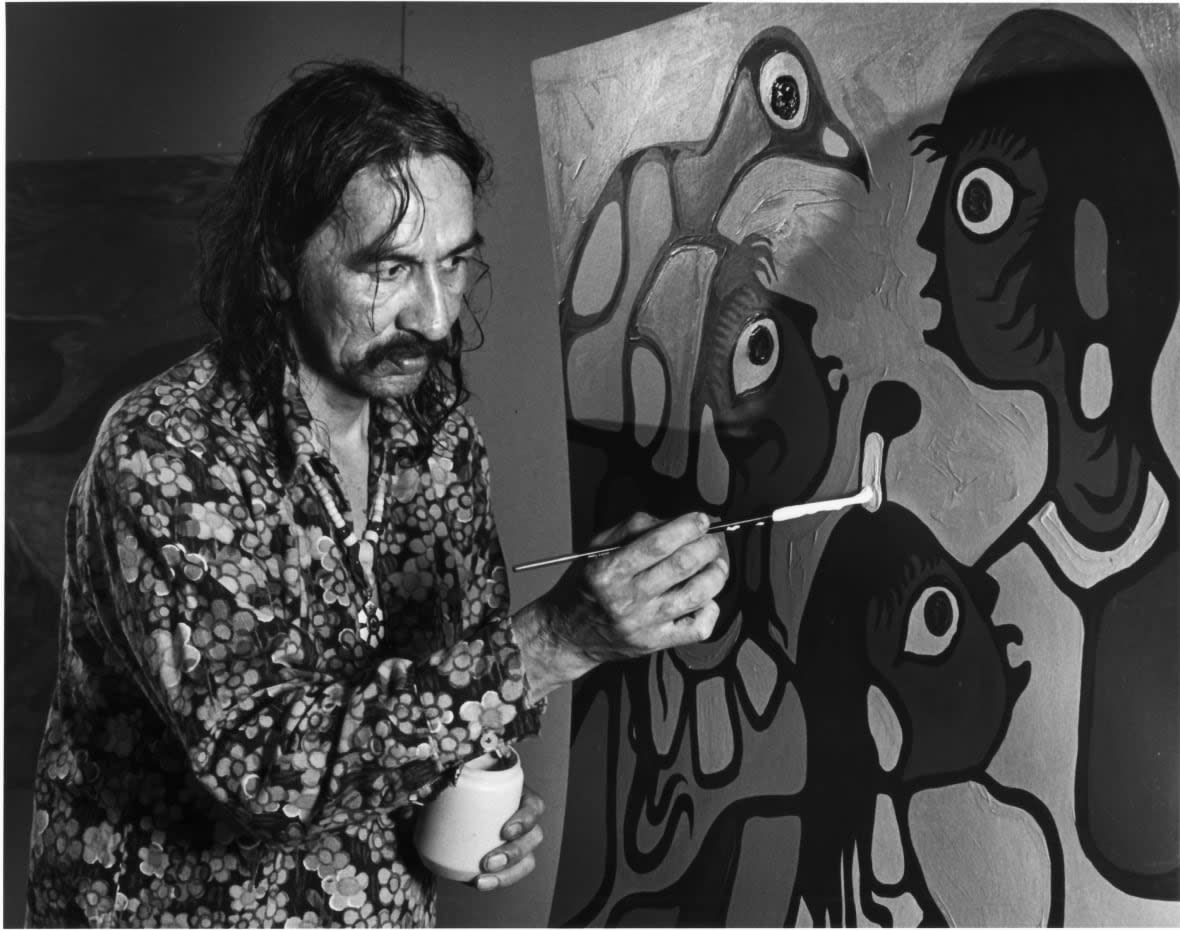Police seizing suspected fake painting by famed Anishinaabe artist from Ontario legislature

Ontario Provincial Police say they are investigating a painting attributed to renowned Anishinaabe artist Norval Morrisseau that hung at the legislature, as part of an ongoing probe into art fraud.
An OPP spokesperson said Thursday that the force is "in the process of seizing" the painting, titled Salmon Life Giving Spawn, in connection with Project Totton, a joint investigation with the Thunder Bay Police Service.
In March 2023, the police services charged eight people and announced they had seized more than 1,000 paintings falsely attributed to Morrisseau in what they called the largest art fraud investigation in Canadian history.
Gary Lamont, the ringleader of the fraud ring, pleaded guilty on multiple charges and was sentenced to five years in prison in December.
Salmon Life Giving Spawn hung in a committee room at Queen's Park as part of a rotating exhibit of Indigenous art, according to the Globe and Mail, which first reported that the work had drawn the attention of Project Totton investigators.
Morrisseau, who died in 2007 at age 75, was a famed artist from the Ojibway Bingwi Neyaashi Anishinaabek First Nation in northwestern Ontario. He's known as the founder of the Woodlands School of art and his work has been exhibited in galleries across Canada, including at Rideau Hall in Ottawa.
Morrisseau was a prolific artist who did not keep records of his works and was even known to trade paintings for basic staples like milk and eggs, a Thunder Bay police detective told CBC News last year. That made his catalogue an easy target for fraud and forgeries.
Cory Dingle, who runs the Morrisseau estate, previously told CBC News he believes there are thousands of fake Morrisseaus still on the market.


